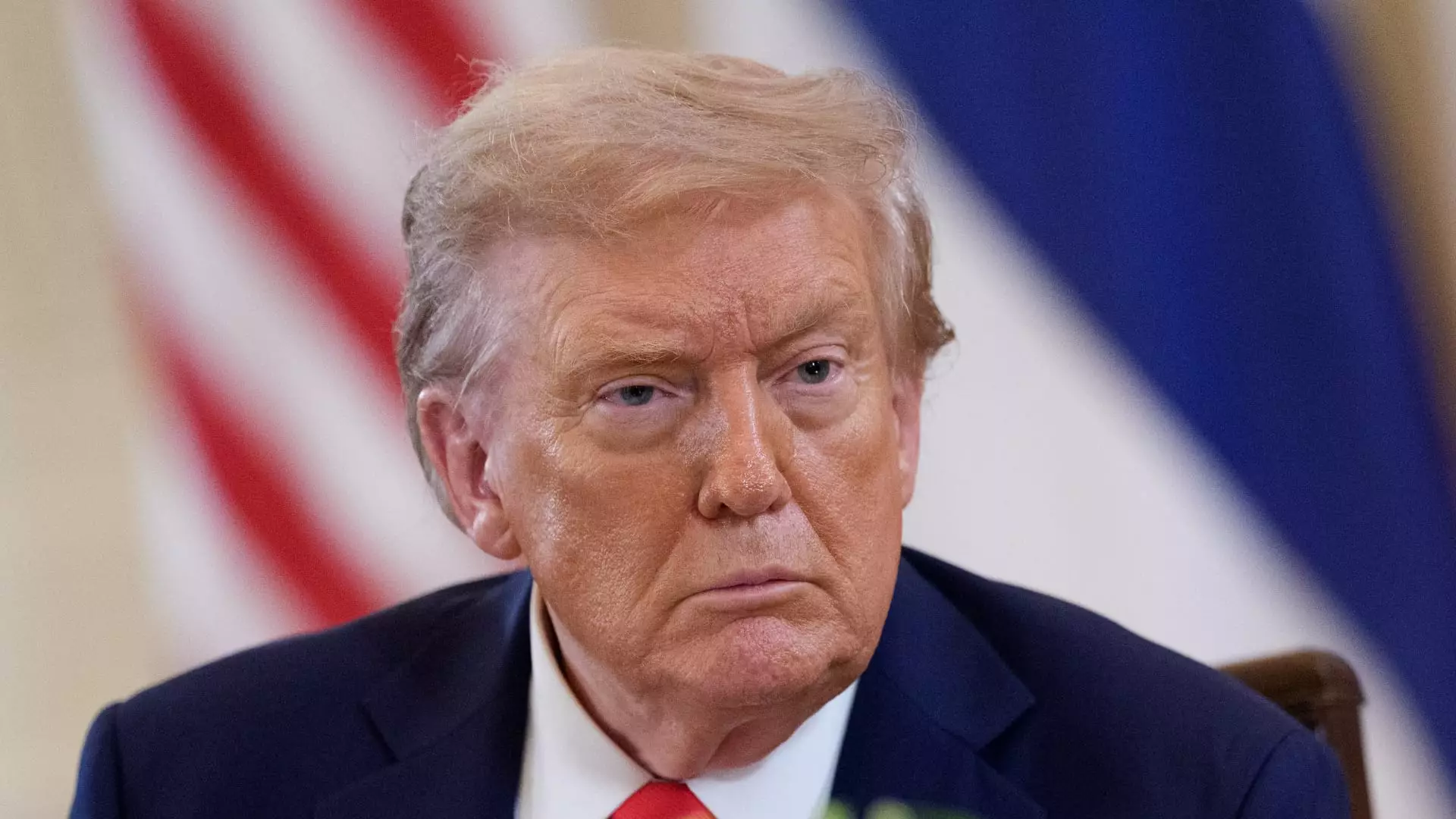In a startling display of financial audacity, President Donald Trump has engaged in a sprawling series of bond acquisitions that rival the most elaborate investment schemes in modern politics. Over the course of his presidency, he amassed a portfolio that includes hundreds of millions of dollars’ worth of debt instruments from various sectors, including local governments, corporate giants, and utility districts. Such activity, disclosed in detailed filings to the Office of Government Ethics, exposes a complex web of financial interests that threaten to erode public confidence and challenge the boundaries of ethical governance.
What makes these transactions particularly troubling is their scope and potential implications for national policy. By purchasing bonds from entities like water districts and hospitals—whose policy decisions can be influenced by economic ties—the president seemingly blurs the lines between public service and private financial gain. While some might argue that investment activity is a personal right, the sheer volume and strategic nature raise questions about whether the president’s financial interests could color his political judgments. The fact that these dealings are not disclosed in full detail or subject to strict conflict-of-interest regulations only compounds the skepticism about whether public trust is being compromised to serve personal financial ambitions.
The Illusion of Privilege and the Impact on Democratic Integrity
Throughout his presidency, Trump has often positioned himself as a champion of the people, a man of business who can shake up a stagnant political system. Yet behind this facade lies a portrait of perpetual profit-making—in some cases, simply riding the wave of speculative investments. With a net worth soaring beyond $5 billion, Trump’s financial ventures contribute to a growing disparity between the political elite and ordinary citizens. His post-presidency financial gains, contrarily dubbed the most lucrative in American history, seem to reflect a prioritization of personal wealth over public service.
More disturbingly, his extensive bond investments—some valued between half a million and a million dollars—raise serious concerns about conflicts of interest. One might question whether his political decisions, especially those relating to fiscal policy or regulation, are being subtly influenced by these economic stakes. The influence of such a vast and opaque portfolio could distort policy priorities, favoring corporate interests, or policies that sustain his own financial position. This becomes a perilous precedent for democracy, contradicting principles of transparency and equality that are the backbone of American governance.
Distorting Democracy Through Financial Self-Interest
While the law provides some exemptions for presidents and high-ranking officials, the absence of stringent conflict-of-interest regulations leaves a dangerous loophole. Trump’s approach to investments—diverse and seemingly strategic—adds fuel to this fire. Unlike his predecessors who divested or placed assets into blind trusts, Trump’s portfolio suggests ongoing interest in sectors that might benefit from advantageous policies or government contracts.
This not only fuels skepticism but also diminishes the integrity of the presidency. Critics argue that a leader with considerable financial entanglements risks using their office to bolster personal wealth rather than serve the public interest. The ethical distinctions become murky when the president owns substantial debt in companies and districts whose policies he influences or benefits from.
Furthermore, Trump’s post-presidential wealth, amplified by ventures aimed at his supporters, blurs the line between political service and profit-making, transforming the office into a platform for wealth expansion. This raises fundamental questions about the moral responsibilities of those entrusted with power and whether the American people can confidently trust a leader whose financial dealings are so intricately tied to their public responsibilities.
A Central Issue of Trust and Accountability
In a functioning democracy, transparency and accountability are sacrosanct. However, the disclosures made by Trump reveal a political landscape where wealth and influence collide, often behind closed doors. The fact that the White House has yet to comment publicly on these investments further accentuates the opacity surrounding his financial dealings.
This situation invites a broader reflection on the ethical standards we expect from leaders in a healthy democracy. The temptation for wealthy individuals to leverage their assets in ways that intersect with public policy is potent and difficult to regulate once accountability falters. Trump’s actions exemplify how the concentration of wealth and influence can threaten the very foundations of democratic integrity, fostering cynicism and disillusionment among the populace who deserve leaders committed to transparency.
At a time when the American public grapples with economic inequality and political polarization, the spectacle of a sitting president—or former president—tilting the scales of governance through financial maneuvers is an affront to the ideals of fairness and public service. It underscores the urgent need for reforms that close loopholes and restore faith in the integrity of leadership—regardless of political leanings—to prioritize the collective good over individual enrichment.


Leave a Reply